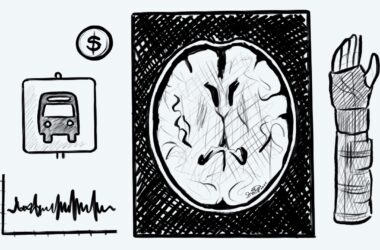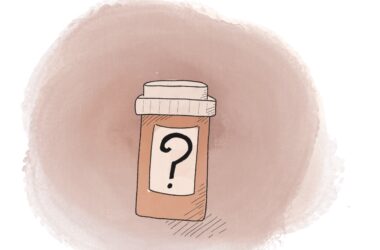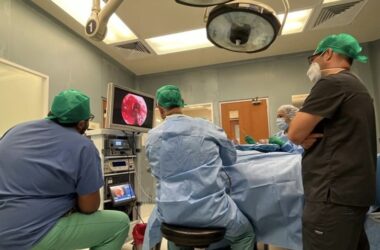While many students spend their day surrounded by cannabis, not all of them can claim that it’s “for research purposes.” For some bioengineering researchers, though, this is their reality. With cannabis slowly rising in popularity among Canadians, research in the field is more relevant than ever. In a recent publication[Read More…]
Science & Technology
The latest in science and technology.
How does sign language impact deaf children’s ability to learn spoken language?
An infant’s first three years of life are their most intensive period for acquiring language. At this stage, parents often speak to their children to stimulate language development and avoid communication challenges later on for their infant. However, this period can be difficult to navigate for speaking parents of deaf[Read More…]
Exploring Montreal’s bilingual identity
Living in a vibrant and multicultural city such as Montreal exposes us to a variety of languages each day. Montreal’s linguistic mélange encourages us to consider how these different languages impact our perception of one another’s languages, and the key factors in this process. In a study conducted in Montreal,[Read More…]
Turning pollution into power: McGill’s green energy innovation
At the First Earth Summit in 1972, the world set out guidelines to help preserve the Earth and prevent climate change. Since then, climate change has gained a prominent place in the global political agenda and has remained a matter of international importance for decades. But what has changed since[Read More…]
The science behind the beat
Imagine a world where every sound makes you want to move. Why is it that some sounds, like the rhythm of a song, spark an irresistible urge to dance while others, like everyday conversation, leave us still and focused? Benjamin Morillon, who completed his postdoc at Montreal Neurological Institute-Hospital (The[Read More…]
Exploring galactic evolution from the Big Bang to the Milky Way
On Oct. 3, McGill’s Trottier Space Institute presented a public talk titled “From Clouds to Cosmic Giants: The formation and evolution of galaxies.” This event featured Tracy Webb, associate professor in McGill’s Department of Physics and observational astronomer, who discussed the development of galaxies from the Big Bang to the[Read More…]
How are Canadians who have legally used psilocybin faring?
While psilocybin, the active psychedelic compound in magic mushrooms, is illegal for both medical and recreational purposes in most countries, studies are increasingly pointing to its potential uses in psychotherapy, especially for relieving anxiety and depression in patients who have terminal illnesses. Canada, alongside Australia, is currently one of only[Read More…]
McGill research explores how an arthrogryposis diagnosis affects families
In Canada, over 30,000 children with disabilities are being cared for at home. Caregiving for children with disabilities requires providing support in various activities of daily life, such as bathing, dressing, managing finances, shopping, and providing transportation. While care can be rewarding, caregivers are at higher risk of experiencing negative[Read More…]
The science behind Ozempic’s triumph
On Sept. 23, McGill’s Office for Science and Society (OSS) organized the Annual Trottier Public Science Symposium, aiming to increase understanding of Ozempic and its deeper implications. Moderated by Joe Schwarz, professor in chemistry and Director of OSS, the event featured two experts in the field. Research leading to discoveries[Read More…]
The hidden risks of malnutrition in presurgical patients
In hospitals across Canada, medical staff often overlook a critical factor in surgical success: A patient’s nutritional status. While surgical teams meticulously plan for every detail of an operation, something as simple as inadequate nutrient intake can quietly undermine even the most carefully orchestrated procedures. Despite its profound impact on[Read More…]















